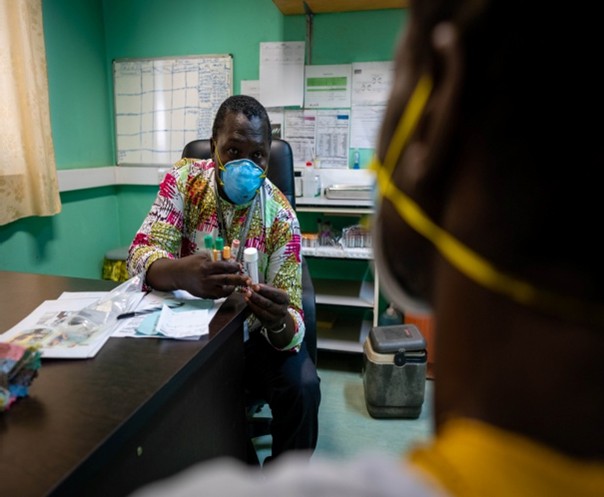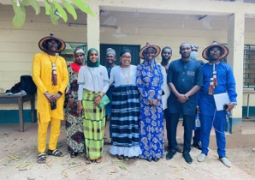
The COVID-19 pandemic caused widespread illness and disruption worldwide. The study, led by researchers at the Medical Research Council Unit, The Gambia at the London School of Hygiene & Tropical Medicine, provides new insights into how African populations responded immunologically to early waves of COVID-19.
Between March and June 2021, researchers collected nasal swabs and blood samples from 349 unvaccinated individuals across 52 households. They measured T-cell and antibody responses in the blood and mucosal samples, to better understand how people responded to COVID -19.
The study found that 78% of adults aged 18–49 had evidence of prior infection, compared to just 26% of children under five. This suggests that children were less likely to be infected and may have had different immune responses than adults.
Individuals previously infected with early strains of the SARS-CoV-2 virus appeared to have immune responses that may have helped protect them from more severe outcomes when newer variants like Delta and Omicron emerged.
Researchers also found that some individuals who did not show detectable COVID-19 antibodies nevertheless had T-cell responses to COVID-19 antigens. This could mean some people were able to fight off the virus without developing the traditional antibody response measured in most tests, or that they had been exposed to related viruses before the pandemic began and had some cross-protective immunity.
“We have few in depth immunity studies to the SARS-CoV-2 virus from African populations, where disease severity was lower compared to HIC for various reasons. Our data show that age and hybrid immune responses are likely to have played a role in protective responses in this community,” said Prof. Beate Kampmann, the study’s Principal Investigator, former Head of the Vaccines and Immunity Theme at MRC Unit, The Gambia and director of the Centre for Global Health at Charité-Universitätsmedizin in Berlin.
“This study offers valuable insight into how different arms of the immune system in our bodies were activated after COVID-19 infection,” said Dr Ya Jankey Jagne (PhD), the lead author of the paper and co-lead of the laboratory team. “Our data reinforce that antibody-based seroprevalence estimates may significantly underestimate true burden of COVID-19. Incorporating T-cell assays provides a more comprehensive measure of population exposure and immunity”, she concluded.
By better understanding how diverse immune systems respond to viruses like SARS-CoV-2, scientists can improve global strategies for vaccination, treatment, and pandemic preparedness.




